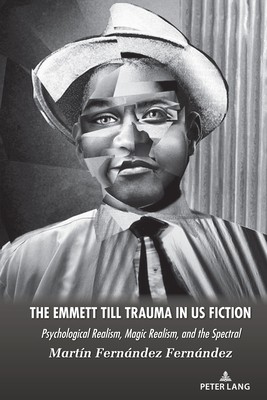
- We will send in 10–14 business days.
- Author: MartÃÂn Fernández Fernández
- Publisher: Peter Lang Publishing
- ISBN-10: 1636672566
- ISBN-13: 9781636672564
- Format: 15.2 x 22.9 x 1.1 cm, kieti viršeliai
- Language: English
- SAVE -10% with code: EXTRA
The Emmett Till Trauma in Us Fiction (e-book) (used book) | bookbook.eu
Reviews
Description
This book analyzes the various ways of coming to terms with the Emmett Till case in US fiction. The 1955 lynching of the fourteen-year-old black youth in the Mississippi Delta raised a cultural trauma in the US collective imaginary that particularly pierced the African American community, later resulting in a recurrent motif that this monograph conceptualizes as the Emmett Till trauma. This motif has historically permeated the whole spectrum of US society, springing up in manifold ways and artistic manifestations, but why does it continue to reverberate with such prominence nowadays? And which strategies have the different communities been adopting to cope with it over the years? This book seeks in literature the answers to these central questions, as it analyzes the ways in which several social groups come to terms with the Till trauma, focusing on the three major novels inspired by the tragic incident: Bebe Moore Campbell's Your Blues Ain't Like Mine (1992), Lewis Nordan's Wolf Whistle (1993), and Bernice L. McFadden's Gathering of Waters (2012). The critical analysis of these three novels is imbued with a theoretical framework mainly based on trauma theory but also influenced by spectrality studies and black studies. Such a theoretical framework allows exploration of the hidden intricacies of the Till case and its traumatic impact on the broader US society, with special emphasis on its aftereffects within the African American community, in the first single-authored monograph on the infamous lynching in literature.
EXTRA 10 % discount with code: EXTRA
The promotion ends in 22d.18:52:20
The discount code is valid when purchasing from 10 €. Discounts do not stack.
- Author: MartÃÂn Fernández Fernández
- Publisher: Peter Lang Publishing
- ISBN-10: 1636672566
- ISBN-13: 9781636672564
- Format: 15.2 x 22.9 x 1.1 cm, kieti viršeliai
- Language: English English
This book analyzes the various ways of coming to terms with the Emmett Till case in US fiction. The 1955 lynching of the fourteen-year-old black youth in the Mississippi Delta raised a cultural trauma in the US collective imaginary that particularly pierced the African American community, later resulting in a recurrent motif that this monograph conceptualizes as the Emmett Till trauma. This motif has historically permeated the whole spectrum of US society, springing up in manifold ways and artistic manifestations, but why does it continue to reverberate with such prominence nowadays? And which strategies have the different communities been adopting to cope with it over the years? This book seeks in literature the answers to these central questions, as it analyzes the ways in which several social groups come to terms with the Till trauma, focusing on the three major novels inspired by the tragic incident: Bebe Moore Campbell's Your Blues Ain't Like Mine (1992), Lewis Nordan's Wolf Whistle (1993), and Bernice L. McFadden's Gathering of Waters (2012). The critical analysis of these three novels is imbued with a theoretical framework mainly based on trauma theory but also influenced by spectrality studies and black studies. Such a theoretical framework allows exploration of the hidden intricacies of the Till case and its traumatic impact on the broader US society, with special emphasis on its aftereffects within the African American community, in the first single-authored monograph on the infamous lynching in literature.


Reviews